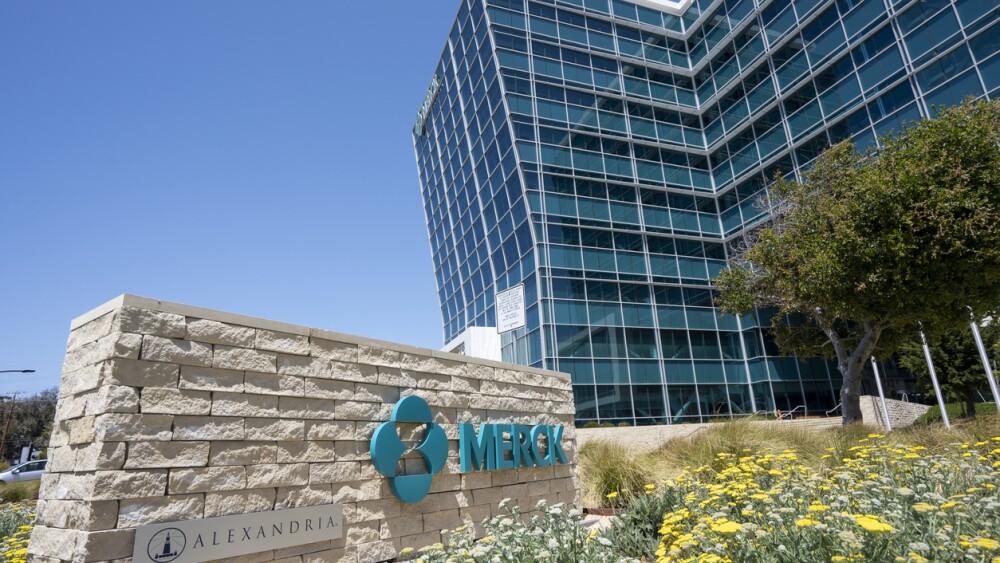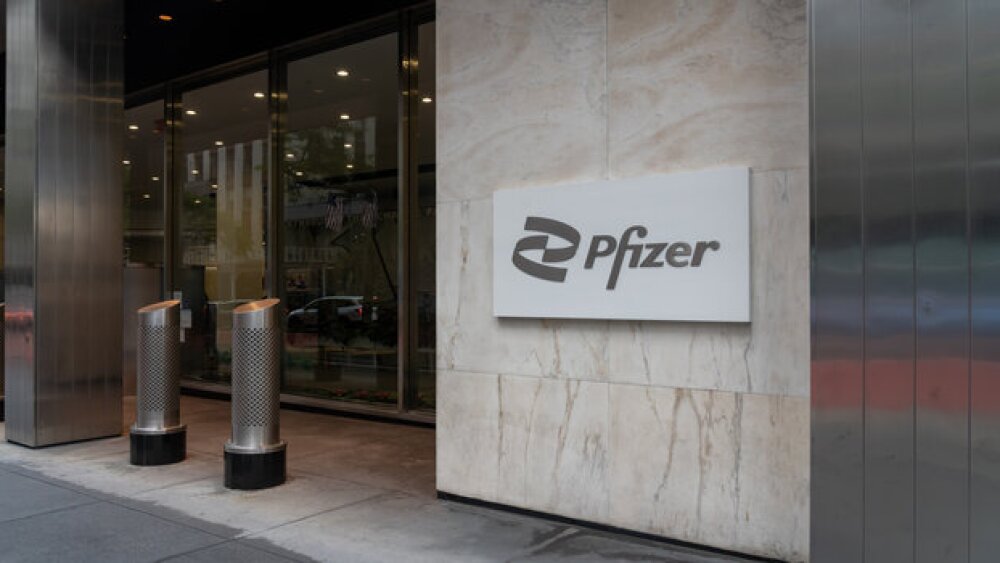Kamada Ltd. (NASDAQ: KMDA; TASE: KMDA) and Kedrion Biopharma two leading plasma-derived protein therapeutics companies, announced today that the results of their registration study for KEDRAB® [Rabies Immune Globulin (Human)] were published in Human Vaccines & Immunotherapeutics, a peer-reviewed medical journal covering research into vaccines and immunotherapeutics in humans.
REHOVOT, Israel and FORT LEE, N.J., Oct. 29, 2019 (GLOBE NEWSWIRE) -- Kamada Ltd. (NASDAQ: KMDA; TASE: KMDA) and Kedrion Biopharma two leading plasma-derived protein therapeutics companies, announced today that the results of their registration study for KEDRAB® [Rabies Immune Globulin (Human)] were published in Human Vaccines & Immunotherapeutics, a peer-reviewed medical journal covering research into vaccines and immunotherapeutics in humans. The full article titled is “Safety and efficacy results of simulated post-exposure prophylaxis with human immune globulin (HRIG; KEDRAB) co-administered with active vaccine in healthy subjects: a comparative phase 2/3 trial,”
The 2017 U.S. Food and Drug Administration (FDA) approval of KEDRAB for post-exposure prophylaxis (PEP) against rabies infection was based on the results of this study, which demonstrated that KEDRAB was non-inferior to the comparator HRIG product in achieving Rabies Virus Neutralizing Antibody (RVNA) levels of ≥0.5 IU/mL on day 14, when each was co-administered with a rabies vaccine. KEDRAB was found to be well-tolerated with a safety profile similar to that of the comparator HRIG product. KEDRAB is marketed in the U.S. by Kedrion, which completed a successful launch of the product in the U.S. in 2018, with total sales of approximately $15.5 million.
“We are gratified that these important study results have now been published in a peer-reviewed medical journal, Human Vaccines & Immunotherapeutics,” said Amir London, Chief Executive Officer of Kamada. “Only two licensed rabies immunoglobulin products were available in the U.S. prior to the approval of KEDRAB, contributing to the successful commercial launch of the product last year and into 2019. We are confident that KEDRAB has the potential to capture a significant share of the estimated $150 million U.S. rabies Immune Globulin market.”
Kedrion and Kamada continue to build on KEDRAB’s product characteristics, clinical efficacy and safety profile. The companies have recently completed the enrollment of 30 pediatric subjects in an FDA-required post-marketing trial in the U.S. with the primary objective of confirming the safety of KEDRAB in children aged 0 to 17 years. Results of this study are expected in the second half of 2020. According to the World Health Organization, 40% of exposures to suspect rabid animals occur in children under 15 years of age, while there is currently very limited data on the safety and efficacy of any HRIG product in children. Therefore, the results of this study could be a significant differentiator for KEDRAB.
“We are excited to provide the details of our pediatric rabies immune globulin trial next year,” said Novinyo Amega, MD, Kedrion Biopharma’s Head of U.S. Medical Affairs. “This trial, which is the first of its kind in this country, will expand on the data and research regarding safety and efficacy of HRIG in the pediatric population.”
During the upcoming 2019 RITA (Rabies In The Americas) conference (Kansas-City, MO - October 27 through November 1, 2019) - an annual international scientific meeting, focused on developments in rabies research, surveillance, control and prevention, Kedrion and Kamada will jointly present an abstract titled “Characteristics of pediatric and adult cases of putative rabies exposure treated in emergency rooms in the United States, reported in the Centers for Disease Control (CDC) National Hospital Ambulatory Medical Care Survey (NHAMCS) between 2002-2016” that will highlight the burden of suspected pediatric rabies exposure cases in the U.S. The significant use of HRIG in the pediatric population emphasizes the need for age-specific scientific data to support the current treatment recommendations. As companies dedicated to rabies treatment and prevention, Kedrion and Kamada are sponsor of the RITA conference.
About KEDRAB®
KEDRAB [Rabies Immune Globulin (Human)] is a human rabies immunoglobulin (HRIG) indicated for passive, transient post-exposure prophylaxis (PEP) of rabies infection, when given promptly after contact with a rabid or possibly rabid animal. KEDRAB should be administered concurrently with a full course of rabies vaccine.
Important Safety Information
- Patients who can document previous complete rabies pre-exposure prophylaxis or complete post-exposure prophylaxis should only receive a booster rabies vaccine without KEDRAB, because KEDRAB may interfere with the anamnestic response to the vaccine.
- KEDRAB should not be injected into a blood vessel because of the risk of severe allergic or hypersensitivity reactions, including anaphylactic shock.
- Patients with a history of prior systemic allergic reactions following administration of human immune globulin preparations should be monitored for hypersensitivity.
- KEDRAB contains a small quantity of IgA. Patients who are deficient in IgA have the potential to develop IgA antibodies and may have anaphylactic reactions following administration of blood components containing IgA.
- KEDRAB administration may interfere with the development of an immune response to live attenuated virus vaccines.
- KEDRAB is derived from human plasma; therefore, the potential exists that KEDRAB administration may transmit infectious agents.
- In clinical trials, the most common adverse reactions in subjects treated with KEDRAB were injection site pain, headache, muscle pain, and upper respiratory tract infection.
- Please see KEDRAB Full Prescribing Information for complete prescribing details.
About Rabies
Rabies is a preventable viral disease of mammals most often transmitted through the bite of a rabid animal. It is a serious, and nearly always fatal, infection. In the U.S., rabies in wild animals, especially raccoons, skunks, foxes and bats, accounts for most cases of rabies passed on to humans, pets, and other domestic animals. An acute, progressive viral encephalomyelitis, rabies carries the highest case fatality rate of any conventional etiological agent. Rabies is one of the oldest described infectious diseases, known for over 5,000 years.
About Kedrion Biopharma
Kedrion Biopharma is a leading international biopharmaceutical company that specializes in the development, production and distribution of plasma-derived therapeutic products for use in treating serious diseases, disorders and conditions such as immune system deficiencies and coagulation disorders. The company operates through a fully integrated business model from the collection of plasma in its own centers in the United States and Hungary to fractionation and production in its manufacturing facilities located in Italy, Hungary and the United States. Headquartered in Castelvecchio Pascoli (Italy), Kedrion has over 2,500 employees and a commercial presence in approximately 100 countries worldwide. Kedrion places a high value on the welfare of those who benefit from its products, as well as on the people and the communities it serves. Additional information about Kedrion Biopharma can be found at www.kedrion.com and www.kedrion.us.
About Kamada
Kamada Ltd. is focused on plasma-derived protein therapeutics for orphan indications, and has a commercial product portfolio and a late-stage product pipeline. The Company uses its proprietary platform technology and know-how for the extraction and purification of proteins from human plasma to produce Alpha-1 Antitrypsin (AAT) in a highly-purified, liquid form, as well as other plasma-derived Immune globulins. AAT is a protein derived from human plasma with known and newly-discovered therapeutic roles given its immunomodulatory, anti-inflammatory, tissue-protective and antimicrobial properties. The Company’s flagship product is GLASSIA®, the first liquid, ready-to-use, intravenous plasma-derived AAT product approved by the U.S. Food and Drug Administration. Kamada markets GLASSIA® in the U.S. through a strategic partnership with Takeda Pharmaceuticals Company Limited and in other counties through local distributors. Kamada’s second leading product is KamRAB, a rabies immune globulin (Human) for Post-Exposure Prophylaxis against rabies infection. KamRAB is FDA approved and is being marketed in the U.S. under the brand name KEDRAB and through a strategic partnership with Kedrion S.p.A. In addition to GLASSIA and KEDRAB, Kamada has a product line of four other plasma-derived pharmaceutical products administered by injection or infusion, that are marketed through distributors in more than 15 countries, including Israel, Russia, Brazil, India and other countries in Latin America and Asia. Kamada has late-stage products in development, including an inhaled formulation of AAT for the treatment of AAT deficiency, and in addition, its intravenous AAT is in development for other indications, such as GvHD, prevention of lung transplant rejection and type-1 diabetes. Kamada also leverages its expertise and presence in the plasma-derived protein therapeutics market by distributing more than 20 complementary products in Israel that are manufactured by third parties.
Cautionary Note Regarding Forward-Looking Statements
This release includes forward-looking statements within the meaning of Section 21E of the U.S. Securities Exchange Act of 1934, as amended, and the safe harbor provisions of the U.S. Private Securities Litigation Reform Act of 1995. Forward-looking statements are statements that are not historical facts, including statements regarding KEDRAB having the potential of capturing a significant share of the estimated $150 million U.S. rabies Immune Globulin market, results from the FDA-required post-marketing trial in pediatric subjects expected in the second half of 2020, and that such results could be a significant differentiator for KEDRAB. Forward-looking statements are based on Kamada’s current knowledge and its present beliefs and expectations regarding possible future events and are subject to risks, uncertainties and assumptions. Actual results and the timing of events could differ materially from those anticipated in these forward-looking statements as a result of several factors including, but not limited to, unexpected results of ongoing clinical studies, delays with various clinical studies, failure to correctly project the market for KEDRAB, regulatory delays, prevailing market conditions, corporate events associated with our partners, and the impact of general economic, industry or political conditions in the U.S., Israel or otherwise. The forward-looking statements made herein speak only as of the date of this announcement and Kamada undertakes no obligation to update publicly such forward-looking statements to reflect subsequent events or circumstances, except as otherwise required by law.
CONTACTS:
Chaime Orlev
Chief Financial Officer
IR@kamada.com
Bob Yedid
LifeSci Advisors, LLC
646-597-6989
Bob@LifeSciAdvisors.com
Forrest McCaleb
Director, Global Communications-US
201-582-8143
f.mccaleb@kedrion.com




